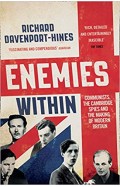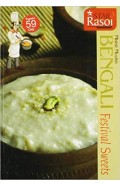- Home
- New Arrivals
- 2024 Releases
- History in the House: Some Remarkable Dons and the Teaching of Politics, Character and Statecraft
History in the House: Some Remarkable Dons and the Teaching of Politics, Character and Statecraft
By: Richard Davenport-Hines
-
Rs 5,215.50
- Rs 5,795.00
- 10%
You save Rs 579.50.
Due to constant currency fluctuation, prices are subject to change with or without notice.
History in the House pulls back the curtains on Christ Church, Oxford and reveals its great and lasting historical significance.
This is an exciting new historiographical study from the much-acclaimed historian Richard Davenport-Hines. It shows the evolution of historical ideas, purposes and methods in a clerisy that has enjoyed conspicuous influence in England for six centuries. There was growing recognition, in Tudor England, that the study of history especially improved the minds, enlarged the imaginations and broadened the vicarious experience of princes, noblemen and administrators. History showed, by precept and example, good government and bad, virtue and vice in rulers, and the reasons for the success or failure of states.
History in the House looks at the temperaments, ideas, imagination, prejudices, intentions and influence of a select and self-regulated group of men who taught modern history at Christ Church: Frederick York Powell, Arthur Hassall, Keith Feiling, J. C. Masterman, Roy Harrod, Patrick Gordon Walker, and Hugh Trevor-Roper (a Victorian radical, a staunch legitimist of the protestant settlement, a conservative, a Whig, a Keynesian, a socialist, and a contrarian).
History in the House pulls back the curtains on Christ Church, Oxford and reveals its great and lasting historical significance.
This is an exciting new historiographical study from the much-acclaimed historian Richard Davenport-Hines. It shows the evolution of historical ideas, purposes and methods in a clerisy that has enjoyed conspicuous influence in England for six centuries. There was growing recognition, in Tudor England, that the study of history especially improved the minds, enlarged the imaginations and broadened the vicarious experience of princes, noblemen and administrators. History showed, by precept and example, good government and bad, virtue and vice in rulers, and the reasons for the success or failure of states.
History in the House looks at the temperaments, ideas, imagination, prejudices, intentions and influence of a select and self-regulated group of men who taught modern history at Christ Church: Frederick York Powell, Arthur Hassall, Keith Feiling, J. C. Masterman, Roy Harrod, Patrick Gordon Walker, and Hugh Trevor-Roper (a Victorian radical, a staunch legitimist of the protestant settlement, a conservative, a Whig, a Keynesian, a socialist, and a contrarian).
TRAITORS: Communists and the Making of Modern Britain
By: Richard Davenport-Hines
Rs 1,100.75 Rs 1,295.00 Ex Tax :Rs 1,100.75
History in the House: Some Remarkable Dons and the Teaching of Politics, Character and Statecraft
By: Richard Davenport-Hines
Rs 5,215.50 Rs 5,795.00 Ex Tax :Rs 5,215.50
Zubin Mehta: A Musical Journey (An Authorized Biography)
By: VOID - Bakhtiar K. Dadabhoy
Rs 892.50 Rs 1,050.00 Ex Tax :Rs 892.50
The Origins of Political Order From Prehuman Times to the French RevolutioN
By: Francis Fukuyama
Rs 4,045.50 Rs 4,495.00 Ex Tax :Rs 4,045.50
Manning Up: How the Rise of Women Has Turned Men into Boys
By: Kay Hymowitz
Rs 845.75 Rs 995.00 Ex Tax :Rs 845.75
The Obama Syndrome: Surrender At Home War Abroad
By: Tariq Ali
Rs 1,100.75 Rs 1,295.00 Ex Tax :Rs 1,100.75
The Quest For Meaning: Developing A Philosophy Of Pluralism
By: Tariq Ramadan
Rs 1,185.75 Rs 1,395.00 Ex Tax :Rs 1,185.75
No similar books from this author available at the moment.
Caught Short: When Nature Calls And You've Nowhere To Hide
By: N/A
Rs 497.50 Rs 995.00 Ex Tax :Rs 497.50
Zubin Mehta: A Musical Journey (An Authorized Biography)
By: VOID - Bakhtiar K. Dadabhoy
Rs 892.50 Rs 1,050.00 Ex Tax :Rs 892.50
TRAITORS: Communists and the Making of Modern Britain
By: Richard Davenport-Hines
Rs 1,100.75 Rs 1,295.00 Ex Tax :Rs 1,100.75
History in the House: Some Remarkable Dons and the Teaching of Politics, Character and Statecraft
By: Richard Davenport-Hines
Rs 5,215.50 Rs 5,795.00 Ex Tax :Rs 5,215.50















-120x187.jpg?q6)





-120x187.jpg?q6)









